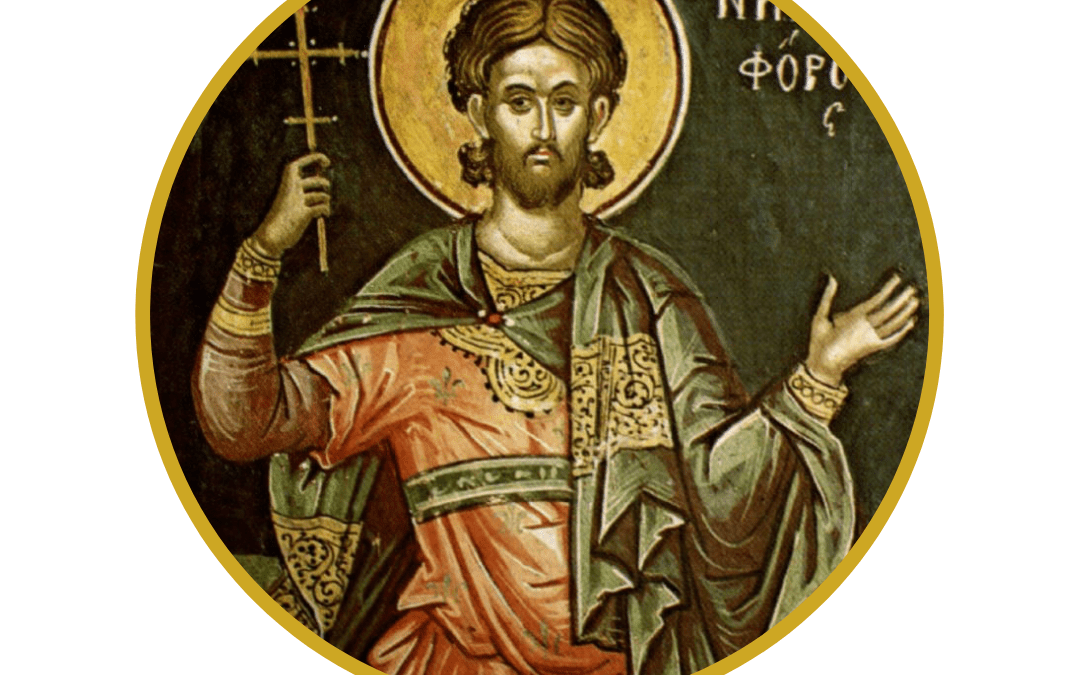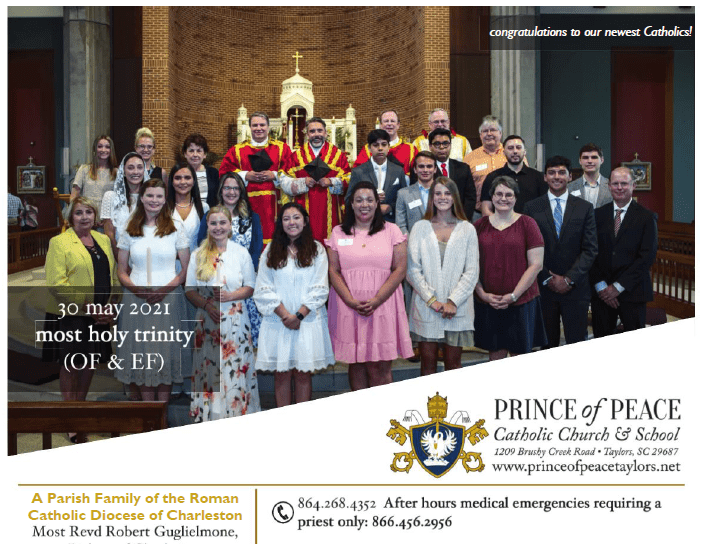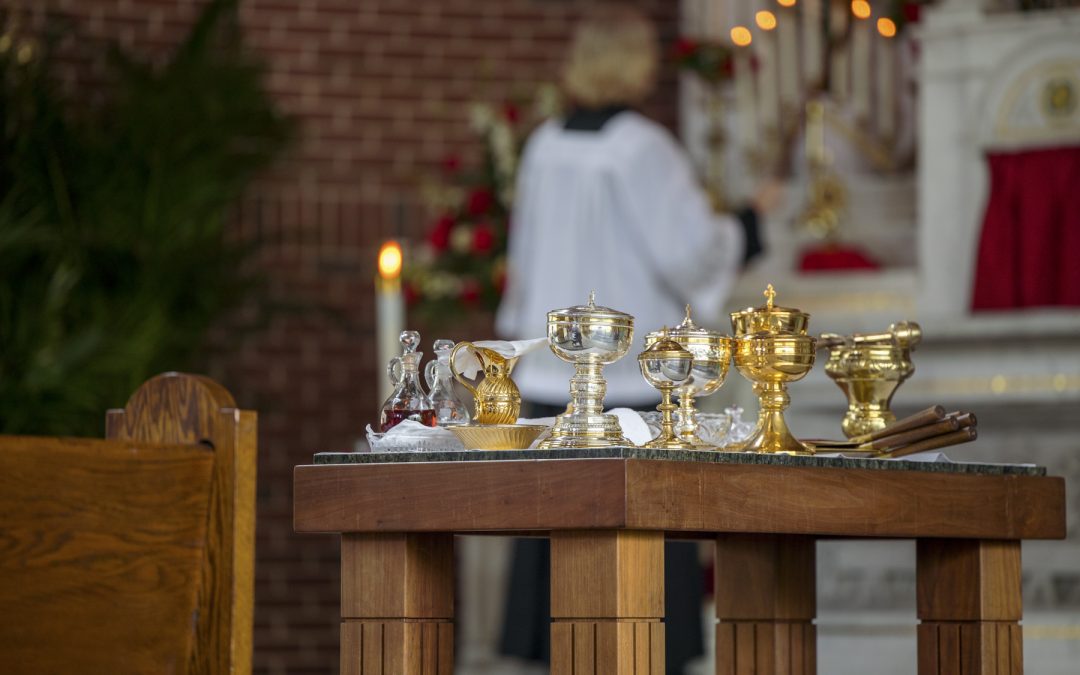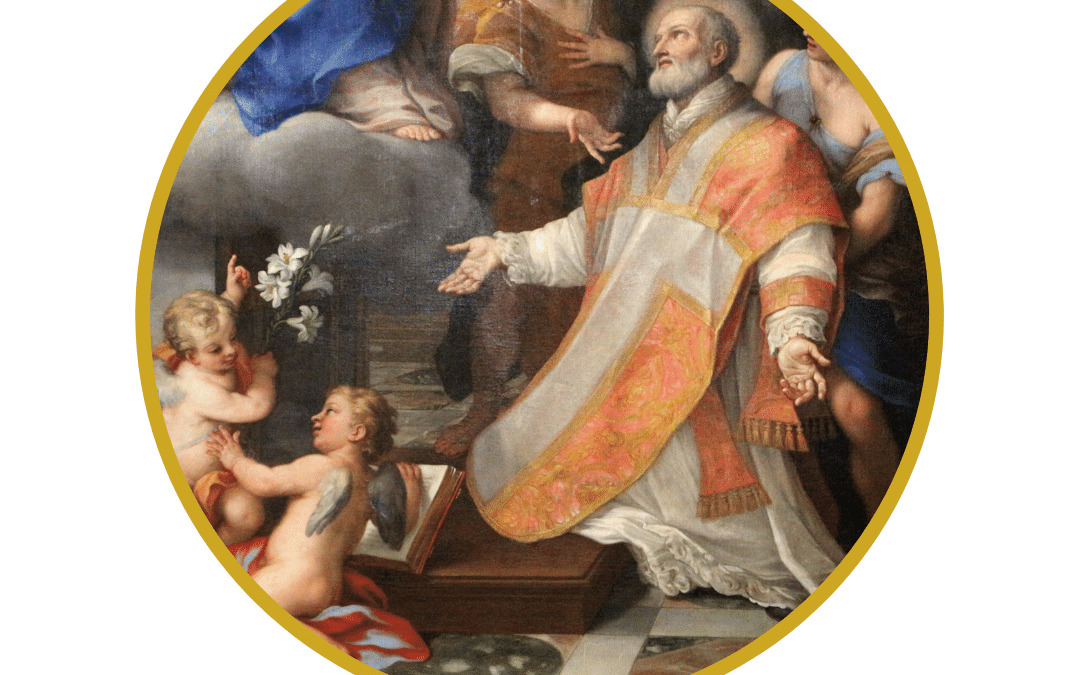
by popadmin | May 31, 2021 | CIC Saint Writeups
1 June: Feast of Saint Justin. Justin is one of the most important Christian writers of the early Church. Born in the year 100 in the Palestinian province of Samaria, Justin was the son of pagan Greeks who provided him with an excellent education. Justin was interested in philosophy and looked for truth in various schools of thought. He became frustrated with philosophers’ intellectual conceits, limitations, and indifference to God. After years of study, Justin had a life-changing encounter with an old man who urged him to study the Jewish prophets, who had spoken by God’s inspiration and predicted the coming of Christ and foundation of His Church. “Above all things, pray that the gates of life may be opened to you,” the man told Justin, “for these are not things to be discerned, unless God and Christ grant to a man the knowledge of them.” Justin studied Christianity and was baptized at age 30. From then on, he studied Holy Scripture day and night, his soul filled with divine fire. As a Christian, he wrote many books explaining and propagating the Christian faith. Among the most famous are his two Apologies or Defenses of the Faith, which argued against the claims of Jews, pagans, and non-Christian philosophers. Several of his works were written to Roman officials, to refute lies about the Church and to end persecution of Christians. Justin’s writings give explicit descriptions of the early Church’s beliefs and modes of worship. In modern times, scholars note that Justin’s descriptions correspond to the traditions of the Church on every essential point. Justin describes the Sunday liturgy as a sacrifice, speaks of the Eucharist as the true body and blood of Christ (stating only baptized persons free of serious sin may receive it), and describes celibacy as a sacred calling. His first defense of the faith, written around 150, convinced the emperor to regard the Church with tolerance. In 167, persecution began again under Emperor Marcus Aurelius. Justin was seized and brought before the prefect of Rome. An eyewitness tells how Justin the philosopher became known as “St. Justin Martyr.” The prefect stated how Justin might save his life: “Obey the gods, and comply with the edicts of the emperors.” Justin responded: “No one can be justly blamed or condemned for obeying the commands of our Savior Jesus Christ.” Rusticus demanded, “Hear me, you who are noted for your eloquence… If I cause you to be scourged from head to foot, do you think you shall go to heaven?” Justin replied, “If I suffer what you mention, I hope to receive the reward which those have already received, who have obeyed the precepts of Jesus Christ. There is nothing which we more earnestly desire, than to endure torments for the sake of our Lord Jesus Christ… We are Christians, and will never sacrifice to idols.” Justin was scourged and beheaded along with six other believers. St. Justin Martyr has been regarded as a saint since the earliest centuries of the Church. He is the patron of apologists, lecturers, orators, philosophers.
Ideas for celebrating this feast at home:
- St. Justin was a prolific writer for the early church. Read his writings here. Read more about St. Justin’s life and his martyrdom.
- Greek food ideas for Justin’s feast: Greek salads, pita with hummus and tzatziki, olives, grilled meat or fish (or grilled kabobs), gyros, Spanakopita… Click here for recipe ideas. Don’t forget to incorporate the martyrs’ liturgical color of red on your table (candles, tablecloths, etc)
- Justin had a great love of Holy Scripture and is said to have had it in his hands day and night. Use his feast to rekindle your love of Scripture. Try reading just a little every day. Read passages out loud to your children.
- An apologist is not someone who apologizes for their faith, but rather someone who explains and defends the Faith. We are exhorted in 1 Peter 3:15 to “Always be prepared to make a defense to anyone who calls you to account for the hope that is in you.” May Saint Justin, brave apologist, inspire us to defend and learn more about our Catholic Faith each and every day.
(sources: catholicculture.org; catholicnewsagency.com; excerpts from The Liturgical Year by Abbot Gueranger)

by popadmin | May 27, 2021 | Bulletin
Click to read this week’s bulletin: 30 May 2021 Bulletin

by popadmin | May 23, 2021 | The Latest
My Dear Brothers and Sisters in Christ,
The time will soon come when we may return to public worship without fear of the coronavirus, and so effective June 5, when we celebrate the feast of Corpus Christi, the general dispensation from the obligation to attend Sunday Mass will end.
Individual dispensation, for those who are still at risk of grave illness and for their caretakers, will remain in place. These include but are not limited to caring for the sick, homebound, or infirm, those who exhibit flu-like symptoms or who are in the high-risk category.
We closed our churches and schools in March 2020 because it was the responsible thing to do, and it was important to follow local, state, and national health ordinances. We were able to resume public worship with safety precautions in place in May, and our Catholic schools opened for in-person instruction in the fall. We have learned how to live with this virus and to find a way through it together.
I am grateful to all of you for the patience and generosity you demonstrated during this difficult year, and it is our goal to make public worship accessible to everyone while still providing options for distancing and safety. Because we will be dealing with it for many years to come, it is important for everyone 12 year of age or older receive the vaccinations which are now available, both for the health of our communities and our shared life in the faith. It is not sinful in any way to receive any of the three COVID-19 vaccines.
As Catholics, we attend Mass to gather as a community that believes in Christ Jesus, and especially to receive our Lord in the Most Holy Eucharist. It is the source and summit of the Christian faith and life. I pray that you and your family will be restored and nourished by returning to the Table of the Lord.
Please pray for your priests who have worked so diligently throughout this pandemic and know that my prayers remain with you and your families.
In the Lord’s Peace,
Most Reverend Robert E. Guglielmone, DD
Bishop of Charleston
At Prince of Peace Catholic Church, a live broadcast of the 10a OF Sunday Mass will be streamed to the PAC with Communion Service for those who are in extraordinary circumstances requiring strict social distancing and mask wearing. In some situations where technology fails, audio only may be offered with Communion Service. Both will fulfill the obligation to attend Mass.

by popadmin | May 23, 2021 | CIC Saint Writeups
26 May: Feast of Saint Philip Neri. Born in 1515, Philip Neri gave up material wealth at the age of 17 and chose to serve God instead of a career in business. He went to Rome and studied philosophy and theology until he thought his studies were interfering with his prayer life. He then threw away his books. After dark he would go to the catacombs to pray. One night, he felt a globe of light enter his mouth and sink into his heart. This gave him so much energy to serve God that he went out to work at the hospital of the incurables and starting speaking about God to everyone from beggars to bankers. Philip found the city of Rome suffering great spiritual deterioration due to ill effects of the Renaissance. Philip committed to re-evangelize Rome. He began with the youth. Philip did pilgrimages for children to keep them out of trouble. He took them to the seven churches of the city, talking all the way and opening their hearts with his joyful spirit. (The practice of pilgrimage to the seven churches is still followed, especially on Holy Thursday.) Philip also reached out to businessmen, giving talks on theology and religion, followed by prayers. These gatherings grew in great numbers. After his ordination into the priesthood, Philip remained a champion of the Faith. He instituted the devotion known as Forty Hours, in which the Blessed Sacrament is exposed for 40 hours while continuous prayer is made. He established a group of priests, the Oratorians. St. Philip was known for his burning love of God. So ardently did this fire of divine love affect him that once during Pentecost the beating of his heart broke two ribs. It was a wound that never healed. For years, Philip worked tirelessly in Rome. He revived the practice of frequent Holy Communion. He promoted frequent confession, himself spending hours a day in the confessional. As a confessor he was in great demand; among his penitents was St. Ignatius. Philip made himself available to everyone at any hour, even at night. He said: “They can chop wood on my back so long as they do not sin.” Humility was the virtue he most tried to teach others and to learn himself. When one man asked if he could wear a hair shirt, Philip said yes – if he wore the hair shirt outside his clothes! The man obeyed and found humility in the jokes he received. There are stories of Philip himself wearing ridiculous clothes or walking around with half his beard shaved off. The greater his reputation for holiness the sillier he would be for the sake of humility. On the Feast of Corpus Christi in 1595, Philip’s doctor told him his health was poor. Philip realized it was his time to go to God. The rest of the day, he listened to confessions as normal. Before heading to bed, Philip stated, “Last of all, we must die.” That night, Philip suffered a heart attack and died. Four years later, his body was exposed and found in good condition. It was moved to the new Oratorian Church, Chiesa Nuova, where it rests today. He was beatified by Pope Paul V in 1615. In 1622, Pope Gregory XV canonized St. Philip Neri with the title “The Apostle of Rome.” He is the patron saint of Rome, United States Army Special Forces, humor and joy.
“Cheerfulness strengthens the heart and makes us persevere in a good life. Therefore the servant of God ought always to be in good spirits.” – St. Philip Neri
Ideas for celebrating this feast at home:
- Click here to read quotes from St. Philip; print one to hang on your wall.
- Download a St. Philip Neri activity for kids here.
- St. Philip Neri was known for his sense of humor. Today, try to laugh at yourself when something annoying happens. Try to make someone else happy with your cheerful disposition or loving act of service. Tell jokes and share smiles around the dinner table.
- St. Philip’s favorite feast was Corpus Christi: make a visit to Jesus in the Blessed Sacrament.
(sources: catholic.org, saintsfeastfamily.com, The Church’s Year of Grace by Pius Parsch)





Recent Comments